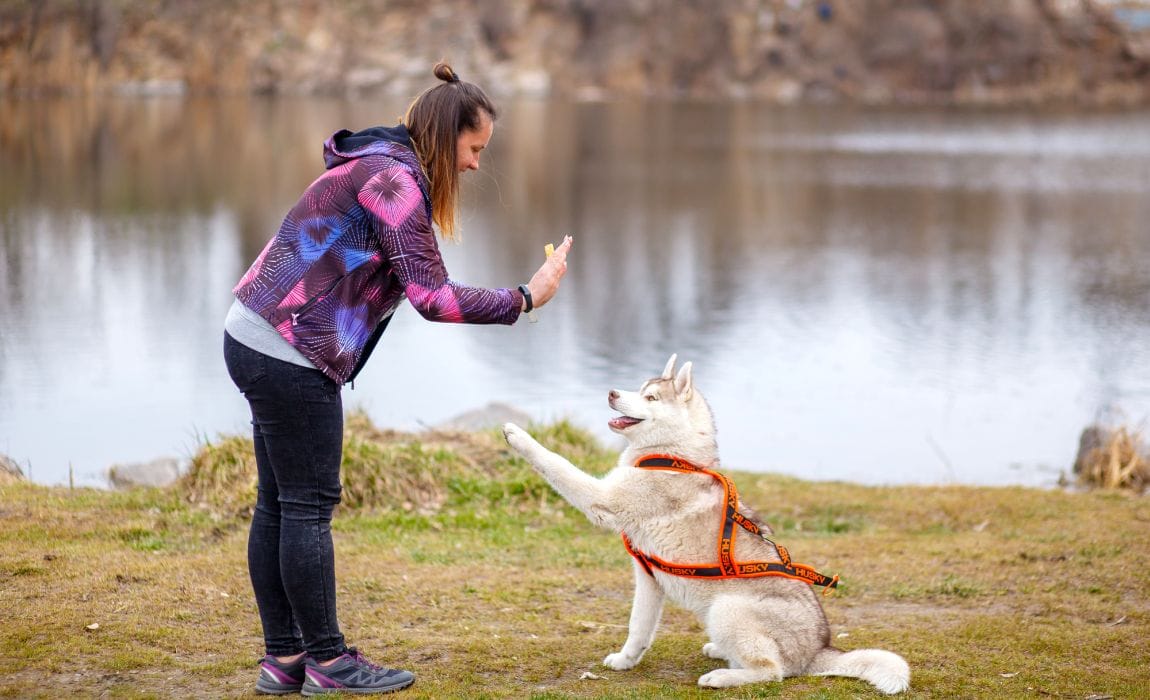Top Pet Dog Training Tips for a Mannerly Friend
Educating your pet dog to be a well-behaved buddy calls for a nuanced understanding of canine actions and the execution of reliable techniques. Essential commands such as "Sit," "Remain," and "Come" act as the structure permanently manners, while positive reinforcement methods can dramatically enhance discovering. Moreover, developing a consistent regular and focusing on early socializing are important parts that contribute to an unified partnership. Nonetheless, the trip to a genteel animal involves greater than simply these basics; it demands a much deeper expedition of methods that can change your training strategy.
Recognizing Dog Actions
Recognizing canine behavior is essential for efficient pet training and promoting an unified relationship between dogs and their proprietors. Canines are complex creatures, showing a vast array of behaviors influenced by genes, environment, and socialization. Recognizing the underlying motivations for a pet dog's activities-- such as worry, enjoyment, or territorial reactions-- can considerably boost training performance.
Observing body language is an important facet of comprehending canine actions. Tail position, ear orientation, and stance can provide important understandings into a pet dog's mood. A wagging tail does not always indicate joy; it can likewise symbolize frustration or stress and anxiety. Moreover, social communications with other pets and humans play an important function in forming actions. Pet dogs that experience favorable socialization are generally extra adaptable and well-mannered.

Necessary Educating Commands
Mastering necessary training commands is crucial for establishing reliable communication in between pet dogs and their proprietors. These commands act as the structure for a mannerly canine and can substantially improve the overall partnership in between pet dog and proprietor.
"Stay" enhances a pet dog's capability to continue to be in one setting, promoting self-discipline. "Down" advises your dog to exist down, which can aid in taking care of ecstatic behavior. "Heel" teaches your pet to walk alongside you, promoting better leash manners.
Exercising these commands in various environments helps dogs generalize their training and react appropriately, regardless of interruptions. By spending time in instructing these necessary commands, proprietors can cultivate a harmonious and considerate relationship with their canine buddies, boosting both safety and security and satisfaction in everyday communications.
Positive Reinforcement Methods
Favorable reinforcement methods are essential approaches in canine training that focus on fulfilling preferred behaviors to motivate their recurrence. This strategy leverages the natural understanding procedures of dogs, enabling them to connect details actions with favorable outcomes. By making use of treats, praise, or playtime as rewards, instructors find here can effectively motivate canines to duplicate the habits they want to reinforce.
To carry out positive support, it is important to provide rewards instantly after the desired behavior takes place. This assists the dog make a clear link between their action and the benefit. Consistency is additionally essential; rewards ought to be offered every time the desired behavior is exhibited during the first training phase, gradually transitioning to a variable timetable as the behavior becomes more trusted.
Understanding your dog's choices can boost the training experience. Inevitably, favorable support fosters a trusting partnership between the pet and proprietor, making training a more delightful and effective procedure that develops a well-behaved companion.

Socializing Techniques
Reliable socialization strategies are essential for a pet's growth, as they help establish a well-rounded and certain friend. Very early direct exposure to numerous environments, individuals, and various other pets is important to stop behavioral issues in adulthood. Begin this procedure throughout the important socializing period, which generally takes place in between three and fourteen weeks of age.
Present your puppy to varied stimuli, such as different surface areas, sounds, and scents. Regulated experiences with various other pets and pleasant humans can foster favorable associations. Pup classes are a superb resource, offering structured settings for social interaction and discovering standard commands.
Slowly enhance the complexity of socializing experiences. Take your pet to parks, pet-friendly shops, and public events, guaranteeing each encounter declares. Observe your pet dog's responses and remove them from frustrating situations to stay clear of fear-based actions.
Use positive support to reward tranquil and positive habits during social interactions. This might involve deals with, praise, or play. Keep in mind, patience is crucial; each canine has its very own speed for adapting to brand-new experiences. By carrying out these socialization approaches, you lay the groundwork for a well-adjusted and friendly canine buddy.
Uniformity and Regular
Establishing uniformity and regimen in canine training is essential for promoting a feeling of safety and security and understanding in look at this website your pet. Pet dogs grow on predictability; understanding what to anticipate aids them feel risk-free and lowers anxiety. When training, it is vital to use the very same commands, gestures, and benefits constantly. This harmony aids in reinforcing preferred actions and aids your dog promptly associate certain activities with certain outcomes.
Integrating an organized regimen into your training sessions likewise boosts your pet's learning experience - Dog training near me. look here Schedule daily training sessions at the same time each day, ensuring that both you and your canine are mentally prepared. Short, frequent training sessions are more effective than long, infrequent ones; aim for 5 to 10 minutes of concentrated training multiple times a day
Incorporate training right into daily activities-- compensate your pet dog for sitting prior to meals or walking steadly on a leash. Overall, a regular strategy, coupled with a structured regimen, lays the foundation for a well-behaved buddy, promoting an unified relationship in between you and your canine.
Conclusion
Finally, efficient dog training counts on comprehending canine actions and carrying out vital commands such as "Sit," "Stay," and "Come." Favorable reinforcement methods offer to encourage desired actions, while very early socialization prepares pet dogs for varied atmospheres. Developing consistency and a regular fosters predictability, which contributes to a mannerly companion. By highlighting these crucial elements, the bond in between owner and canine reinforces, ultimately bring about a harmonious and meeting relationship.